If we are truly part of a global family of faith, we should be anguished that our brothers and sisters around the world are suffering the impacts of climate breakdown, says Holly Anna Petersen. She shares some of their stories
One of the cruellest characteristics of climate change is that while it is largely caused by industrialised countries such as the UK, it generally impacts poorer countries more.
While we are starting to feel some of the effects of climate breakdown in Britain – with both Storm Eunice and the European heatwave causing billions of pounds of damage last year – these pale in comparison to what is happening in other parts of the world. This inconsistency is why many describe the climate crisis as the world’s gravest injustice.
With its worst consequences out of sight and out of mind, people in the UK can feel a sense of inertia when it comes to tackling the crisis. But how should we respond as Christians? 1 Corinthians 12:26 says that: “If one part of the body suffers, all the other parts suffer with it” (NCV). If we are truly part of the global body of Christ, the suffering of our brothers and sisters around the world should be of paramount importance to us.
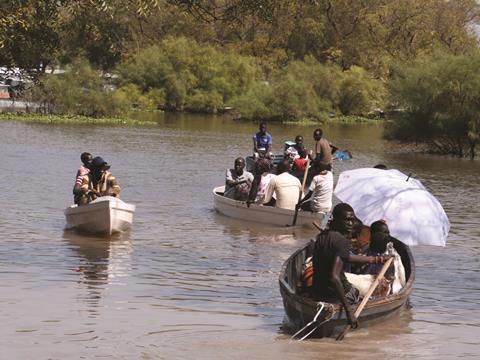
1. South Sudan
South Sudan is a country with many challenges, not least a bloody civil war that has ravaged the country for decades. Sadly, the country has also been affected by devastating floods in recent years. Most Rev Moses Deng Bol, Archbishop of Northern Bahr el Ghazal, has seen the impact of the floods first-hand. Hundreds of thousands of people have been affected, and tens of thousands have been displaced from their ancestral homes. “People have died as a result of water-borne diseases,” he says. “The floods have destroyed the crops in most of the lowlands. Seeing a woman cooking on a table which is standing in water, and cows standing on the roofs of the traditional huts due to lack of dry ground has been very stressful.
“Climate change needs to be addressed immediately because the environment is everything. Without a healthy environment, human beings and animals cannot survive.”
Despite the suffering, Archbishop Moses still retains his sense of humour: “The positive side of the flood is that at least it comes with a lot of fish!”
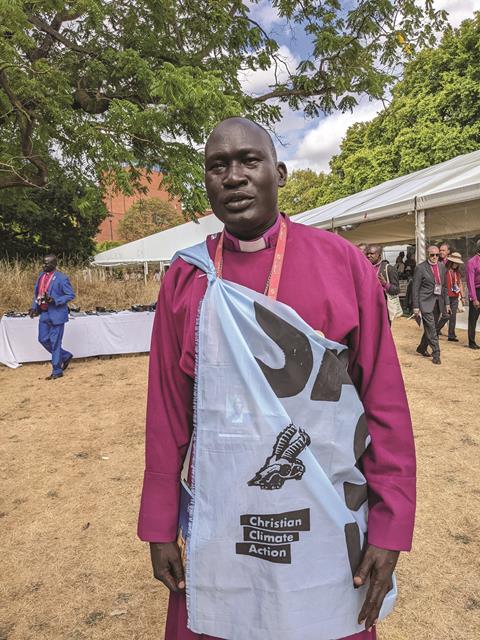
2. India
In India, climate change is fuelling deadly heatwaves, with temperatures in some regions reaching 50°C. Prof Dr Mathew Koshy is former principle of Bishop Moore College, a school set up by the Church in Kerala. He explains that heatwaves have: “severe health consequences, [such as] heat stress, dehydration, heat cramps, heat exhaustion and heatstroke – especially for vulnerable populations like the elderly, children, and those with pre-existing health conditions.”
He also describes how the high temperatures lead to water shortages, with devastating knock-on effects for farmers: “Prolonged heatwaves lead to crop failures and reduced crop yields. Kerala is a major producer of coconut, rubber and spices. It is heavily dependent on its water resources for agriculture, industry and domestic use.”
India has a very low per capita emissions level, which is why climate campaigners there say that the burden of the climate crisis shouldn’t be left to Indian people to deal with alone.
3. Brazil
Brazil has experienced a range of climate-related disasters in recent years, including devastating floods and wildfires. In 2020, the Pantanal region experienced its worst drought in 47 years. Designated a UNESCO World Natural Heritage and Biosphere Reserve, the Pantanal National Park is one of the largest wetlands on earth, with more than 4,700 different species of animals and plants.
Environmental issues are human justice issues, as the poor and most vulnerable are the most affected
Dr Elizabeth Sherrill, the Anglican Communion Environmental Network representative for Brazil, said 30 per cent of the biome was consumed by fire, causing unprecedented environmental, economic and social damage: “Wildlife unique to this ecosystem was burned to a crisp, the vegetation crushed and people dislodged. The National Guard and other federal agencies were called to assist but it took months before the fire was extinguished,” she says. “The whole country was mobilised as the flames were televised ripping through one of our most cherished natural habitats. It is home to many original people’s lands. The financial losses caused by fires and extreme drought are great, as is the loss of crops used for subsistence. It made us all feel the intensity of climate change very closely.
“The Church has a major role to play in emphasising the theological basis of caring for creation,” Dr Sherell continues. “Environmental issues are human justice issues, as the poor and most vulnerable are the most affected. We need a change of economic paradigm, in which the short-term gain of a few is put in the long-term perspective of degrading the life-giving systems of our planet. We have come to a point of no return. We should have taken action decades ago.”
The evidence for climate change
- 97 per cent of actively publishing climate scientists agree that humans are causing climate change.
- Global average temperatures have been increasing since the Industrial Revolution, when fossil fuel use increased rapidly. The past nine years have been the hottest since modern record-keeping began in 1880.
- Between 2000 and 2019, there was a 9.8 per cent increase in the number of recorded disasters caused by extreme weather events, compared to the previous two decades.
- The melting of ice caps has resulted in sea levels rising around 20cms between the early 20th century and 2019.
- The Intergovernmental Panel on Climate Change (IPCC) projects that if global heating continues at our current pattern, 20 to 30 per cent of species could be at an increased risk of extinction by mid-century.
4. USA
In the United States, climate change is bringing an increase in hurricane wind intensity and rainfall rate. This means that a greater proportion of storms will reach very intense (Category 4 or 5) levels. In fact, the 20-year average of the annual number of Category 4 and 5 hurricanes in the Atlantic region has approximately doubled since 2000.
Dr Robert Sluka is lead scientist at the marine conservation programme of Christian charity A Rocha. He lives in Florida and was a student at the University of Miami when Hurricane Andrew, one of the most powerful and destructive hurricanes to hit the USA, made groundfall in 1992. He says it was “heartbreaking” to see the impact that it had “particularly on hard-hit areas of south Florida where people lost everything”.
Since moving back to the USA in 2017, Dr Sluka has experienced several other hurricanes, and says the risk is now part of his life. He is keen to point out that the impacts of the climate crisis extend to all of God’s creation: “As someone who is deeply concerned about non-human animals, the stories we hear about are disproportionately about one species, Homo sapiens. We need to be better at telling the story of our non-human neighbours and understanding the impacts on their lives.” Dr Sluka sees tackling the environmental crisis as being not just about ourselves and God, but seeing “all relationships healed – with God, ourselves, each other and nature”.
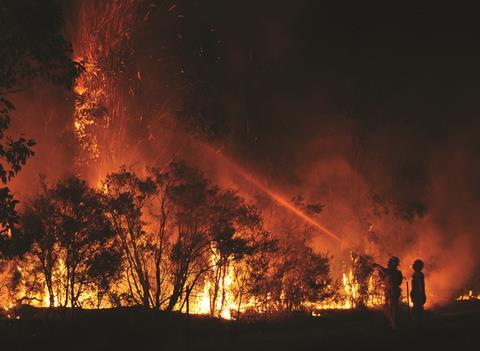
5. Australia
During the 2019-20 fire season in Australia, record-breaking temperatures and months of severe drought fuelled a series of megafires across the country. At least 33 people were killed and more than eleven million hectares of bush, forest and parks burned.
Rt Rev Dr Murray Harvey, Bishop of Grafton, New South Wales, says the extensive bushfires that occurred “right down the Eastern seaboard” are the “serious impact” of climate change. But so are the “catastrophic floods”, which decimated communities across the country.
“In Lismore, a city in my diocese, 15 metres of water inundated the central business district and many residential areas, destroying the homes of over 5,000 families as well as businesses, churches, schools and essential infrastructure. In some cases, the same communities were flooded again a few weeks later and then again after that. While these communities have experienced flooding before, the amount of water was unprecedented and the frequency of flood events is on the increase, making vast areas of the region uninhabitable due to the likelihood of severe weather events in the future.”
Bishop Murray explains that the diocese of Grafton is committed to addressing the issue of climate change and his passion is clear when he speaks about the victims of the flooding: “It is heart-rending to witness the suffering of people affected by these weather events,” he says.
In Australia, the impact of climate change seems to have made a difference at the ballot box, with last year’s general election, dubbed the ‘climate election’, seeing the pro-climate Labour Party sweep to power.
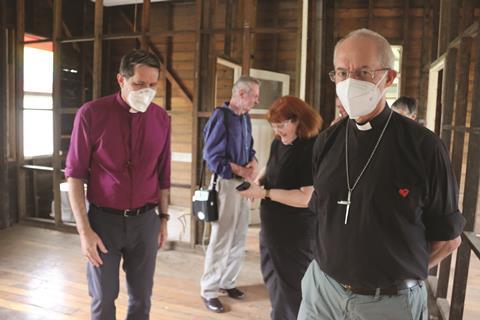
6. Kenya
In East Africa, a rapidly changing climate has led to prolonged and serious drought since 2021. Many harvests have failed and, in an area where livestock is relied upon for basic sustenance, millions of cattle are emaciated or dead. More than 13 million people have been displaced, forced to search for water and pasture.
Fatuma Molu lives in Marsabit County, northern Kenya. She describes how the area was once one of the most productive in the county: “In the past, being a farmer here in Jaldesa was very lucrative. There was plenty of rain and our crops thrived.” But as the droughts have become longer and more extreme, she says: “There’s no water, no food, the livestock die as a result, and we don’t have food in our farms.”
Fatuma is the chair of Aldisaudo farm, run by Jaldesa Women’s Group. In the face of the changing environment, they have changed their business model, being re-trained by PACIDA, a partnering organisation of Christian Aid. Now, they survive by selling grass as fodder.
As well as displacement caused by drought and famine, millions of people have also fled their farmlands and homes due to environmental-related conflict. “Diminishing resources force communities to fight over water and pasture,” explains Fatuma. Many women, including Fatuma, have lost their husbands to the frequent conflicts.
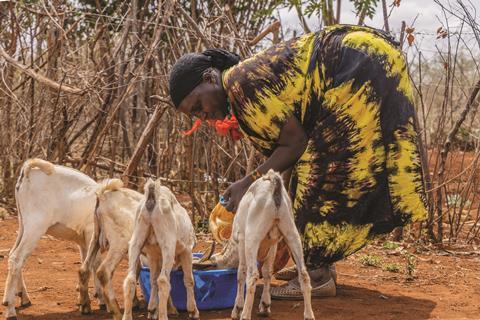
The church in action
The IPCC has made it clear that, in order to avoid the worst impacts of climate breakdown, we require: “rapid, far-reaching and unprecedented changes in all aspects of society”. The majority of these changes need to be implemented by our politicians and policymakers in the next three years, according to the UK’s Climate Change Committee.
It’s a daunting task, but if we can’t make it a reality, we are condemning our brothers and sisters across the globe to ever-increasing levels of suffering. The Church is, as the Bible says, a body. And so, as we have parts of the Church both suffering from and causing the climate crisis, we are perfectly placed to demonstrate the importance of climate action.
Unlike an individual business or a politician, the Church has been around for centuries. We can act prophetically for the common good of all people, everywhere. As Christians, we stand at a crossroads. Do we close our eyes and ears to the pleas of our global neighbours, or do we do everything in our power to stop climate breakdown?
But what can I do?
Governments and businesses should have started taking meaningful climate action decades ago, when the destructive impacts of climate change were first realised. Sadly, this didn’t happen, and so we find ourselves in the eleventh hour, with scientists saying that we need change at an unprecedented speed and scale if we stand any chance of stopping the damage that is being wreaked across the globe.
This puts Christians in a moral dilemma.
We can all make healthy lifestyle choices as part of our worship to a creator God (eg: eating less red meat, walking instead of driving, not flying etc). But the sad reality is that these things alone will not work quickly enough to prevent the crisis of climate breakdown.
We could take part in nonviolent, direct-action protest. Social justice movements have historically been successful in bringing about large scale changes quickly (such as the struggle for suffrage or the American civil rights movement). But such protests are often seen as unpalatable, as a key factor in their success requires causing disruption to our business-as-usual lives.
Previous government inaction may have forced us into a situation where there is now no perfect solution to tackling the climate emergency. However, we have a perfect God, who holds us as we take steps forward and prayerfully lean into a love which “casts out fear” (1 John 4:18, ESV).













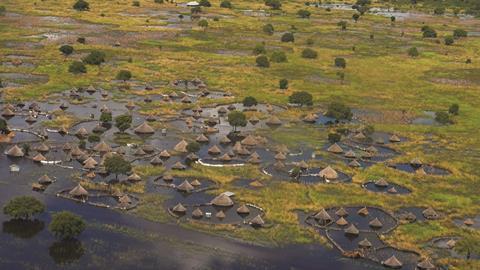

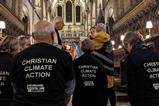
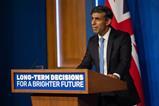





















No comments yet